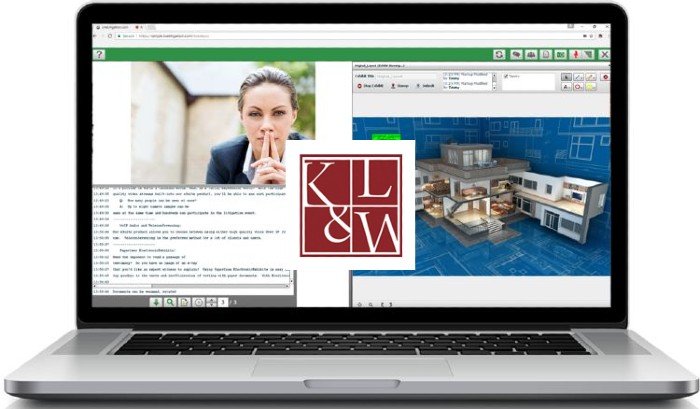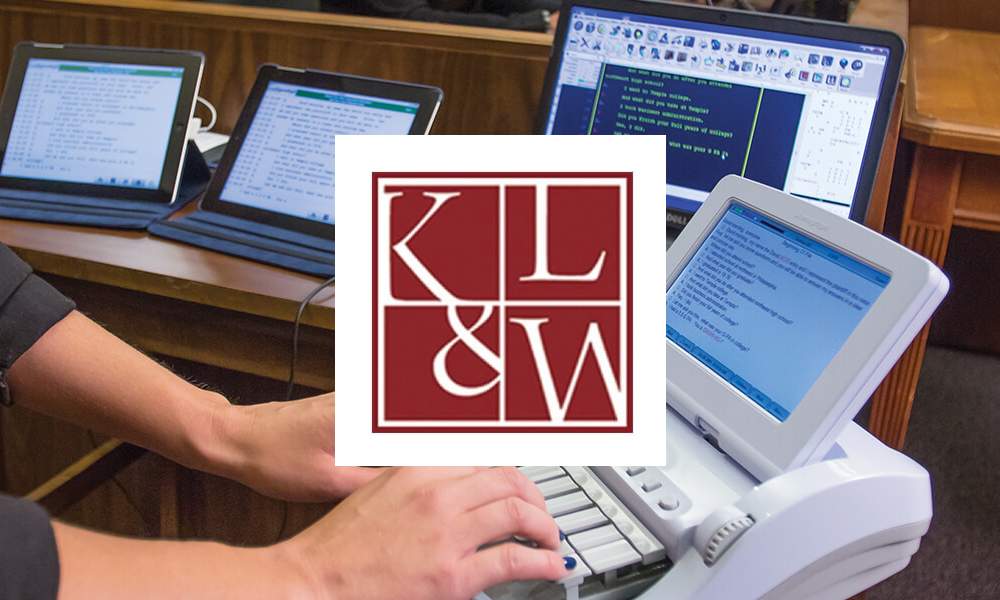Kaplan Leaman & Wolfe Announces “Affordable Flat Rates Nationwide” For Remote Depositions & Virtual Court Reporting Services

Kaplan Leaman & Wolfe Court Reporters announced today that the company will now offer an affordable flat-rate fee for all remote depositions and virtual court reporting services for clients across the nation.
The company’s new pricing structure for these services is calculated on a price-per-page basis and is designed to significantly reduce litigation expenses for legal professionals throughout the United States.
 “While our new per-page pricing structure has been very popular with clients across the United States, we have seen particularly high demand for these services in certain places like Texas, California, New York, and several other states, where traditional court reporting rates are significantly higher compared to the national average,” said the company’s CEO & Owner, Gregg Wolfe.
“While our new per-page pricing structure has been very popular with clients across the United States, we have seen particularly high demand for these services in certain places like Texas, California, New York, and several other states, where traditional court reporting rates are significantly higher compared to the national average,” said the company’s CEO & Owner, Gregg Wolfe.
“With the growing demand for remote depositions and virtual court reporting services, we wanted to create a cost-effective solution specifically designed to help reduce litigation expenses for legal professionals nationwide,” said Wolfe.
Affordable Pricing For Virtual Services Reduces Litigation Costs

Kaplan Leaman & Wolfe Court Reporters is a leading provider of remote depositions and virtual court reporting services across the nation. The company is proud to offer 100% HIPAA Compliant Remote Depositions with no charges to participants for the connection.
Instead, Kaplan Leaman & Wolfe charges an affordable price-per-page fee that applies to all remote deposition and virtual court reporting services across the nation with no additional costs.
Those interested in scheduling services with the company can do so by using KLW’s Online Deposition Scheduling Tool, by emailing scheduling@klwreporters.com or by calling the deposition scheduling department directly at (877) 559-3376.
Virtual Depositions Become A New Standard In The Legal Industry

Due to the unexpected events of Covid-19 in recent months, professionals in the legal industry have increasingly turned to video-conferencing technology, such as Zoom, in order to conduct depositions from a remote environment.
The sharp rise in virtual litigation events in recent months started out of necessity as the legal industry was forced to adapt to new social-distancing requirements. However, many professionals in the legal industry have come to realize the benefits of remote depositions and virtual court reporting services, suggesting that this will be a growing trend going forward.
As a court reporting agency that prides itself on staying ahead of the curve by continually adopting innovative legal technology solutions, Kaplan Leaman & Wolfe Court Reporters has been providing accurate transcripts with the latest technology for the past 40 years.
About Kaplan Leaman & Wolfe Court Reporters
Kaplan Leaman & Wolfe Court Reporters is a premier court reporting and litigation support agency that works with attorneys, law firms, insurance companies, corporations and other legal professionals across the United States.
The company is led by CEO & Owner, Gregg Wolfe, who recently retired from an impressive 35-year career as a highly-respected court reporter with the United States District Court for the Eastern District of Pennsylvania.
Company Contact Information:
Gregg Wolfe
CEO & Owner | Kaplan Leaman & Wolfe Court Reporters
(877) 559-3376 | scheduling@klwreporters.com

 Boca Raton, FL – Kaplan Leaman & Wolfe Court Reporters has announced the official opening of a new office location in Boca Raton as part of the company’s strategic expansion in Southern Florida.
Boca Raton, FL – Kaplan Leaman & Wolfe Court Reporters has announced the official opening of a new office location in Boca Raton as part of the company’s strategic expansion in Southern Florida. “The official opening of our Boca Raton office marks an important milestone in our company’s continued commitment to providing the legal community in Palm Beach County with the highest quality of court reporting and litigation support services,” said the company’s Owner & CEO, Gregg Wolfe.
“The official opening of our Boca Raton office marks an important milestone in our company’s continued commitment to providing the legal community in Palm Beach County with the highest quality of court reporting and litigation support services,” said the company’s Owner & CEO, Gregg Wolfe. Kaplan Leaman & Wolfe’s CEO, Gregg Wolfe, has announced his retirement from his 40-year career as a highly-respected court reporter with the United States District Court for the Eastern District of Pennsylvania.
Kaplan Leaman & Wolfe’s CEO, Gregg Wolfe, has announced his retirement from his 40-year career as a highly-respected court reporter with the United States District Court for the Eastern District of Pennsylvania.




